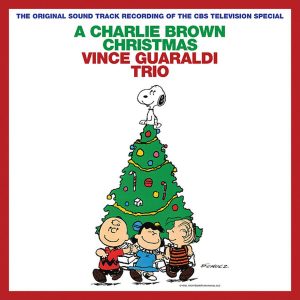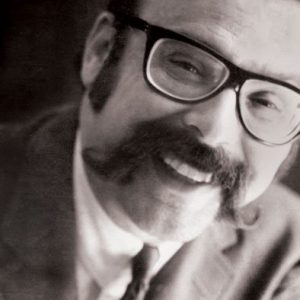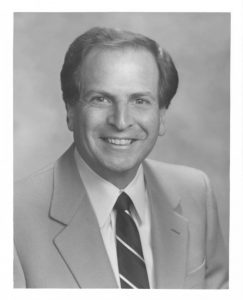I offer up a hot, steaming mug (or if you prefer, an ice-cold martini) of gratitude to Jack Conte, who created the Patreon platform in 2013, and to my wonderful patrons for having given me the wherewithal to write, opine, and on occasion bloviate on topics musical.
I will in today’s Dr. Bob Prescribes acknowledge the “season of giving” by offering up some “holiday music”, holiday music that will serve as something of an antidote to the seasonal treacle that has been assaulting our ears since at least the day after Thanksgiving. (Yes, color me humbug. To my mind and ear, one of the great challenges of surviving the holiday season is coping with the music. Question: for how long can we tolerate the high-fat aural regimen of silent nights, roasting chestnuts, spinning dreidels, little drummer boys, and sugar plum fairies before our ears occlude with phlegm-like plaque and simply stop working?)

Thank heavens, there are exceptions to this musical mugging we call “holiday music”, and I’m not just referring to the music of J. S. Bach and G. F. Handel. Last year, in my Dr. Bob Prescribes post for December 25, 2018, I offered up the phenomenal Dave McKenna’s album Christmas Ivory (Concord, 1997) as a balm for the season. For today – December 24, 2019 – I would offer up Vince Guaraldi’s iconic A Charlie Brown Christmas (1965).
(I’ll be the first to admit that for a post that purports to address lesser-known works and/or recordings, featuring Guaraldi’s A Charlie Brown Christmas is sort of ridiculous, because as the sound track for the TV special A Charlie Brown Christmas, it’s one of the best-known and best-loved jazz albums ever recorded. But its back story is fascinating and more than worthy of discussing. So, let’s do just that!)
Here’s what happened

Vince Guaraldi (1928-1976) was born-and-raised in San Francisco’s North Beach, (which I am looking at as I write this from my home studio across the Bay in the Oakland Hills). He graduated from Lincoln High School in San Francisco, attended San Francisco State College (today’s San Francisco State University), and served in Korea in the United States Army.
After his service, Guaraldi returned to San Francisco and began his career as a jazz pianist. In 1961-62, he recorded a piano trio album for Fantasy Records at Tenth and Parker streets in Berkeley, California entitled Jazz Impressions of Black Orpheus. The album featured a number of tunes by Antonio Carlos Jobim and Luis Bonfá from the French/Brazilian film Black Orpheus, which had won an Academy Award in 1960 for Best Foreign Film. Figuring to cash in on the developing Brazilian Bossa Nova craze, Fantasy Records issued Guaraldi’s version of Jobim’s Samba de Orpheus on a 45-rpm record. The result was a classic good-news/bad-news situation. The bad news: Guaraldi’s Samba de Orpheus had about as much success on the radio waves as a neo-Nazi motivational speaker at a Rabbinical convention. The good news: the Guaraldi original casually placed on side “B” of the 45-rpm record took off like a pack of musicians headed for a buffet table. That Guaraldi original is a piece called Cast Your Fate to the Wind, a haunting Bossa Nova with swing solos. Cast Your Fate to the Wind shot to the top of the charts and garnered for Guaraldi the 1963 Grammy Award for “Best Original Jazz Composition”. (It was a category that only existed from 1961 – 1967, as opposed to those categories that continue to flourish, like “Best Icelandic Thrash Metal-Psychobilly Performance” and whatnot.)

Scene change. In 1963, a then 30-year-old, San Francisco-born TV producer named Lee Mendelson quit his job at KPIX-TV in San Francisco (the local CBS affiliate) and started his own production company. His first documentary after having left KPIX- about Willie Mays – was entitled A Man Named Mays. Not long after the Mays documentary first aired (on NBC), Mendelson read a Peanuts comic strip in the San Francisco Chronicle that featured Charlie Brown’s utterly pathetic baseball team. According to Mendelson, “What came into my mind was ‘you’ve just done the world’s greatest baseball player, now you should do the world’s worst baseball player, Charlie Brown.’” …
A merry-merry to everyone.
